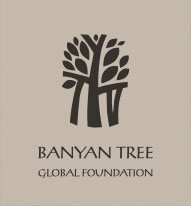“Biological diversity, the sum of every species, plant or animal, regardless of size or function, contributes in a meaningful way towards a healthy functioning, resilient and sustainable environment.”

Biodiversity & The Environment
The challenge
Areas of high biodiversity may provide a foundation for tourism, and consequently we must act as stewards to safeguard and promote a healthy, resilient and sustainable environment.
Our Approach
Banyan Tree applies a strategic and science based approach to conservation to engage and educate stakeholders and develop stewardship. Our adaptive conservation framework addresses key global issues, critical habitats and priority species.
Dedicated conservation labs in the Maldives and Indonesia support conservation through research, restoration and awareness programmes, further supported by international research collaborations. Data generated is reported to stakeholders to support local or regional management.
Site specific initiatives provide active and passive engagement opportunities to support environmental awareness, remediation, protection and restoration.
Our Goal
Promote conservation through awareness, restoration and research.
Our Progress
Please find further details of our progress under the initiatives laid out below.

ENVIRONMENTAL MONITORING
Annual coral reef monitoring at 18 sites in the Maldives and six sites in Bintan completed their sixth and eighth years respectively, with reports published online and shared with local managers. These scientific assessments inform and direct conservation and restoration projects, and quantify recovery from the 2016 global coral bleaching event.
Shark Sightings
3,053 – 2019
1,851 – 2018
2,946 – 2017
Bird Sightings
1,327 – 2019
1,344 – 2018
1,252 – 2017
Case Study: Following our pledge in 2016 to support the establishment of the Maldives as a UNESCO Biosphere Reserve, in 2017 we collaborated with the Ministry of Environment and Energy, Environmental Protection Agency, the Marine Research Centre and the IUCN, providing technical guidance, training and assistance monitoring coral reefs for the Biosphere assessment.

CITIZEN SCIENCE
Citizen science offers the opportunity for people from all walks of life to engage, learn, and support conservation by collecting easy and fun data. Citizen scientists are helping understand long term change in marine mega fauna populations following nationwide protection in the Maldives, as well as bird populations and migrations with changing climate and land use in Bintan.
Supported by both Banyan Tree Bintan and Angsana Bintan, the Bintan Conservation Lab seeks to raise international awareness of the importance of Indonesia’s biodiversity, which is at risk due to unsustainable development practices causing habitat destruction.
Birds are biological indicators of habitat health and climate change, and training was provided to establish a citizen science programme in Phuket. We will look to implement this approach at other properties.
Participants
2,715 – 2019
2,473 – 2018
2,869 – 2017

Environmental Awareness
Awareness and education are the cornerstone to environmental conservation and the first step towards effective stewardship. Education programs have been implemented through presentations, guest lectures, ecotours, walks and snorkels to connect people to the local environment and increase awareness.
Site specific initiatives provide active and passive engagement opportunities to support environmental awareness, remediation, protection and restoration.
Participants
37,524 – 2019
35,955 – 2018
36,880 – 2017
Properties
38
35
21

CLEAN
During 2020, over 50.5 tonnes of waste were removed by 6,054 participants during 148 clean-up events conducted worldwide.
Participants
47,349 – 2019
43,377 – 2018
10,325 – 2017
Properties
36
37
30
Removed Trash
89,931 kg
84,720 kg
32,889 kg

PROTECT
After coral bleaching, Crown-of-Thorns-Starfish (COTS) are one of the biggest threats to Indo-Pacific coral reefs. Weekly control efforts have helped mitigate a recent outbreak in the Maldives and contributed towards protecting important coral reef ecosystems.
Participants
1,424 – 2019
1,422 – 2018
766 – 2017
COTS Removed
2,205
2,486
1,567
Reef Searched
85.2 km
50.6 km
90.0 km

RESTORE
Restoration efforts include restocking fish and aquatic life (Fuxian Lake and Samui) and transplanting corals (Maldives, Bintan). Introduction of whitebait fish in Fuxian Lake led to declines in endemic species. In 2017, 360 crucian carp were released to assist endemic populations and raise awareness of invasive species.
Coral reef restoration efforts have been supported by the establishment of coral nurseries at three resorts in the Maldives, and creation of artificial reefs that use electricity to create “biorock” in collaboration with academic experts. Coral restoration efforts were largely on hold in the Maldives since 2016 due to the coral bleaching reducing transplanted survival.
Participants
630 – 2019
358 – 2018
273 – 2017
Corals Planted
2,677
4,806
1,647
Discover More
Our tiered approach to conservation combines long term monitoring, citizen science, and academic studies with conservation projects focusing on understanding species and habitats, and increasing awareness.
Utilising the expertise of Our Labs, data generated is reported to stakeholders to support local or regional management, and direct our conservation, restoration and awareness programs.





